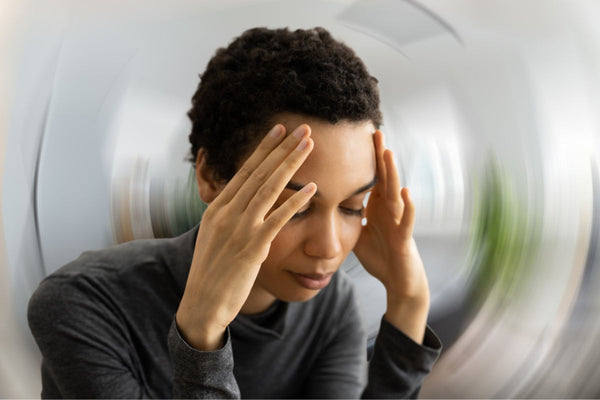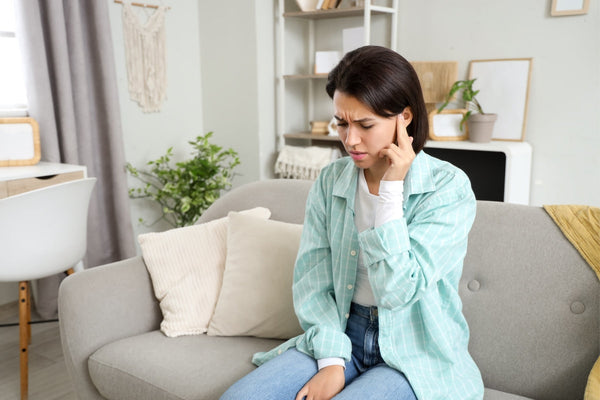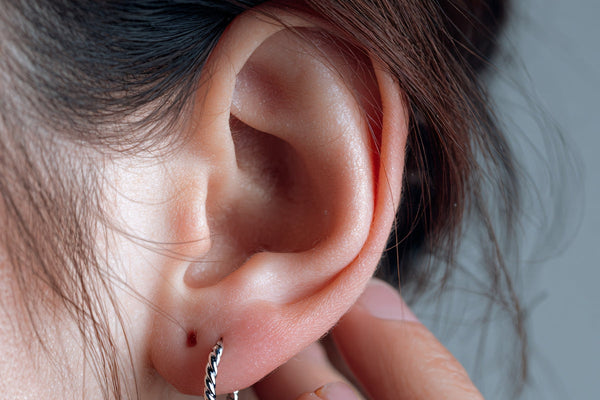
Labyrinthitis is an inner ear condition that affects both balance and hearing. It occurs when the delicate structures deep inside the ear, known as the labyrinth, become inflamed. This inflammation disrupts signals sent to the brain, causing dizziness, spinning sensations (vertigo), and sometimes temporary hearing loss.
At Leightons, we understand how unsettling sudden dizziness or hearing changes can be. The good news? Most people recover fully with time and the right care. Our audiologists are here to help you understand your symptoms, assess your hearing, and provide guidance on your next steps.
What is labyrinthitis?
The labyrinth is a part of your inner ear responsible for hearing and balance. It contains two main parts:
- The cochlea, which helps with hearing.
- The vestibular system, which controls balance and spatial awareness.
When the labyrinth becomes inflamed, conflicting signals reach the brain, leading to dizziness and imbalance. Labyrinthitis can affect one or both ears and may cause short-term hearing loss or tinnitus (ringing in the ears).
What causes labyrinthitis?
Labyrinthitis is often caused by an infection, most commonly viral, that spreads to the inner ear. Common causes and triggers include:
- Viral infections, such as cold, flu, or upper respiratory infections
- Bacterial infections, which are less common but can be more severe
- Middle ear infections that spread to the inner ear
- Sinus infections or congestion
- Occasionally, stress or fatigue, which can slow recovery
It’s important to note that labyrinthitis itself isn’t contagious - but the viruses that cause it can be. Maintaining good general health and hygiene can help lower your risk.
Common symptoms of labyrinthitis
Symptoms of labyrinthitis can develop suddenly, sometimes appearing within hours. They may range from mild dizziness to more intense vertigo and hearing changes. The most common symptoms include:
- Vertigo - a spinning or swaying sensation
- Dizziness or loss of balance
- Nausea or vomiting
- Temporary hearing loss, usually in one ear
- Tinnitus (ringing or buzzing)
- Ear pain or pressure (in some cases)
These symptoms can be intense at first, but they usually improve within a few days. Full recovery can take several weeks, depending on the cause and individual health.
How is labyrinthitis diagnosed and treated?
If you’re experiencing persistent dizziness or hearing changes, it’s important to seek medical advice. A GP or ENT specialist will usually diagnose labyrinthitis after reviewing your symptoms and checking your ear health.
Treatment focuses on relieving symptoms and supporting recovery:
- Medication may be prescribed to reduce dizziness, nausea, or inflammation.
- Antibiotics can be used if a bacterial infection is suspected.
- Rest and hydration are essential for recovery.
- Vestibular rehabilitation therapy (VRT) may help if balance problems persist.
Most people recover completely within a few weeks, but some may experience ongoing balance issues or mild tinnitus for a little longer.
Recovering from labyrinthitis
During recovery, it’s normal to feel unsteady or sensitive to movement. Some simple steps can help you manage symptoms and get back to normal:
- Move slowly and avoid sudden position changes.
- Try to stay active with gentle movement once dizziness eases - this helps retrain your balance system.
- Avoid driving or operating machinery until vertigo has fully resolved.
- Get enough rest and stay hydrated to support your body’s healing process.
If you continue to experience dizziness or hearing changes after a few weeks, a free hearing test or ear health check can help identify any lasting effects.
How Leightons can help
At Leightons, we provide expert hearing assessments and ear health checks to identify any lingering hearing or balance issues following labyrinthitis. Our audiologists can:
- Assess your hearing and ear health in a safe, professional environment.
- Identify whether hearing loss or tinnitus has developed as a result of labyrinthitis.
- Refer you to a GP or ENT specialist if further medical care is needed.
- Offer advice on protecting your hearing and managing ear-related balance problems.
Our goal is to help you feel confident, stable, and supported as you recover from your symptoms.
Book your free hearing assessment today and take the first step towards better balance and clearer hearing.








